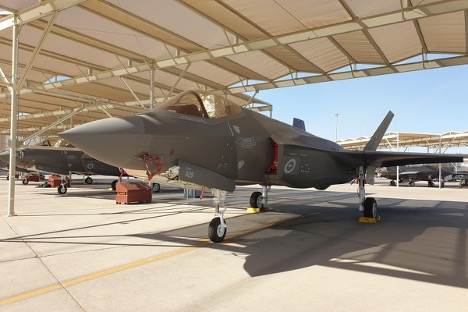By Alisha Welch
Australia’s fifth-generation fighter jet capability continues to grow with the recent acceptance of the 30th F-35A Lightning II from prime contractor Lockheed Martin.
Significant work is undertaken before Australia can formally accept each jet, with pre-acceptance testing involving multiple checks on the production line at Lockheed Martin’s facility in Texas, as well as several flight tests to ensure each F-35A is up to the tasks the RAAF requires.
F-35A Air Vehicle Lead Squadron Leader Brook Porter is about to wrap up his three-year posting to Joint Strike Fighter Branch in Capability Acquisition and Sustainment Group, where he has been involved in accepting 28 F-35A aircraft.
Squadron Leader Porter said the in-depth acceptance process ensured each F-35A was ready for Australian defence registration and operational use.
“Working with local and international stakeholders, the team has also been integral to ferrying the majority of these aircraft to Australia from the US,” Squadron Leader Porter said.
“It’s rewarding to be part of the team establishing Australia’s future air-combat capability. It’s much bigger than simply delivering an aircraft.
“It’s important to remain vigilant and stick to our ‘smart-customer’ approach. This means we are constantly asking questions to ensure we are getting value for money, as we strive to deliver Australia’s fifth-generation fighter jet capability.”
Director General Joint Strike Fighter Branch Air Commodore Damien Keddie said accepting and ferrying each of Australia’s jets was the epitome of international collaboration.
“I am proud of the way the team has come together, particularly during the global pandemic, to find innovative solutions to issues that may otherwise have prevented us reaching 30 aircraft in the fleet,” Air Commodore Keddie said.
This article was published by the Australian Department of Defence on September 21, 2020.
Featured photo: The 30th F-35A Lightning II accepted from prime contractor Lockheed Martin


